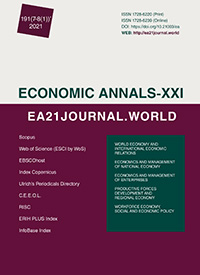Higher education in the post-pandemic world: prospects for revival and risks for oblivion
Higher education in the post-pandemic world: prospects for revival and risks for oblivion
Author(s): Svitlana Tishchenkova, Larysa Martseniuk, Nataliia Cherniak, Oleksii HruzdievSubject(s): Economy, Higher Education , Distance learning / e-learning
Published by: Institute of Society Transformation
Keywords: Higher Education; COVID-19 Pandemic; Concept of University; Digital Divide; Virtualization of Education; Funding of the Higher School; Consumer Society;
Summary/Abstract: Contemporary educational discourse is marked by versatility and inconsistency of viewpoints on the post-pandemic future of the higher school. The most widespread are the two approaches to the comprehension of the prospects of its development tentatively outlined in the presented article as radically pessimistic and unjustifiably optimistic. The proponents of the first approach speak of the «demise» of the neoclassical model of university and emergence of the new digital format of lifelong learning based upon mastering the utilitarian knowledge by means of local educational courses; the proponents of the second approach are confident in the utility of the «natural selection» among the universities and further existence of the institution of higher education as a small number of technologically well-equipped and innovation-oriented educational establishments. «Veritas in medio est», – state those who criticize both approaches, implying a post-digital hybrid model of the higher school which would preserve a culture-generating Concept of the university and simultaneously would have fundamentally new institutional characteristics and funding schemes.Fragmentation of society and culture, revolutionary changes in the methods of production and information transfer, acquisition by social networks of a leading role in the formation of the social consciousness – all this combined with the diktat of the developed consumer society and consequences of the COVID-19 pandemic, which proved to be destructive to the world economy, demands a new educational paradigm free of illusions and unreasonable expectations. Whether the institution of the higher education would become an archaism and would depart into oblivion or it will be reborn in a variety of novel forms, including the hybrid ones, of a university «without walls» and time restrictions? The search for an answer to this question has become determinative for the authors of the presented research.
Journal: Економічний часопис - ХХІ
- Issue Year: 191/2021
- Issue No: 7-8(1)
- Page Range: 16-29
- Page Count: 14
- Language: English

